April 14, 2025 | 22:52 GMT +7
April 14, 2025 | 22:52 GMT +7
Hotline: 0913.378.918
April 14, 2025 | 22:52 GMT +7
Hotline: 0913.378.918
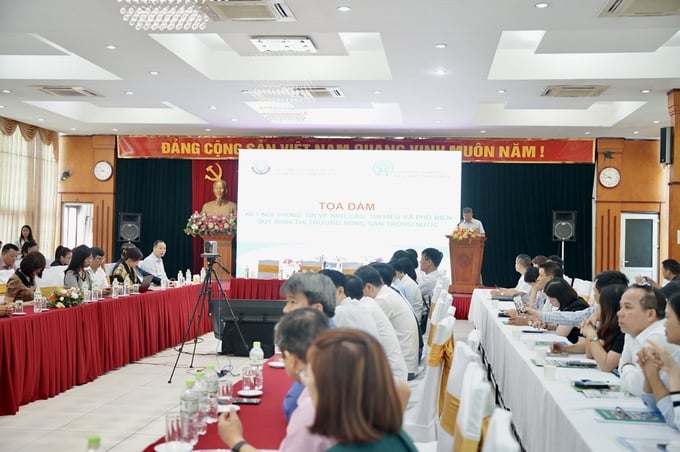
The seminar "Connecting Information on Domestic Agricultural Market Needs, Preferences, and Market Regulations" is an opportunity for relevant parties to grasp market information, and connect consumer needs, especially in the last months of the year. Photo: Linh Linh.
On October 19, the Department of Quality, Processing, and Market Development (Ministry of Agriculture and Rural Development), in collaboration with the Hanoi Department of Agriculture and Rural Development, held a seminar on "Connecting Information on Domestic Agricultural Market Needs, Preferences, and Market Regulations."
Mr. Nguyen Nhu Tiep, the Director of the Department of Quality, Processing, and Market Development, mentioned that the issue of connecting information and disseminating market regulations for agricultural products is not only a task to ensure people's livelihoods but also contributes to the development of the agricultural industry.
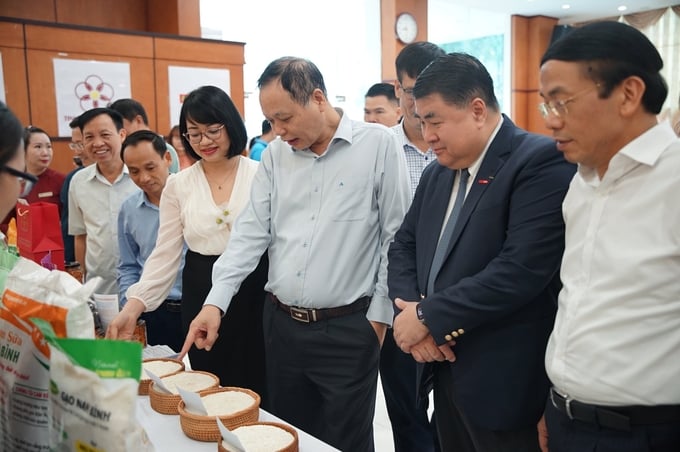
Mr. Nguyen Nhu Tiep, Director of the Department of Quality, Processing and Market Development (blue shirt standing in the middle), and delegates visited the booth displaying and introducing agricultural products at the Seminar. Photo: Linh Linh.
"Producing agricultural products according to market signals is considered an essential requirement to meet demand, avoid waste… However, how to do it effectively, for producers to understand the standards, regulations, and, from there, to produce products that meet the requirements of consumers, the domestic market, and foreign markets," Mr. Tiep shared.
The story of market connection is not only necessary for export goods but is also crucial for the domestic market. According to representatives from the Department of Quality, Processing, and Market Development, both domestic and international retail channels effectively bridge the gap between producers and consumers.
However, modern retailers are currently establishing their own standards and regulations for products, such as good agricultural practices, green and clean production, ensuring social well-being, and ensuring the welfare of laborers. These can be seen as the "identity" of each retailer, and producers who want to access this channel also need to pay attention and gather information while ensuring compliance with product quality requirements.
Sharing the perspective of retailers, Ms. Nguyen Huong, Director of Value Creation at WinCommerce - the Winmart retail chain, stated that modern retail chains are playing a crucial role in developing brands and agricultural products from different regions of Vietnam in the domestic market and serve as a launching pad for Vietnamese agricultural products in the international market.
"Consumption is one of the three pillars of the three-horse carriage driving economic growth and development, especially in the past two years when investment and exports were heavily affected by the pandemic, and global declines affected domestic demand with a population of 100 million, domestic consumption is an essential solution for economic growth," Ms. Huong noted.
Meanwhile, retail chains are making efforts to strengthen their active sales points, open more sales points, introduce new models, and provide solutions to inspire consumers and enhance retail services.
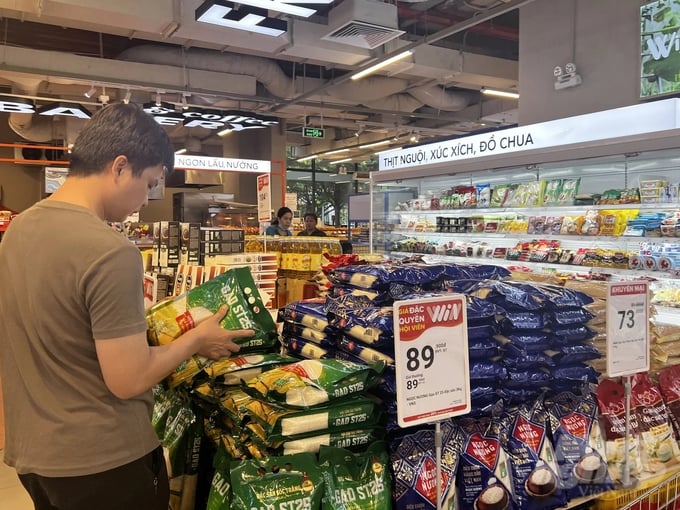
Modern retail chains are currently playing a crucial role in brand development and the promotion of agricultural products from different regions and areas. Photo: Nguyen Thuy.
According to Ms. Huong, retail chains are doing more than just purchasing products; they are localizing and responding to market signals. Retail chains provide information about product quantities, goods supplied to the market, and the market's capacity for that product so that localities can plan their production areas, suitable quantities, and suitable volumes accordingly. In addition, retail channels also provide strict procedures to ensure compliance with quality requirements, bringing products to the shelf and retail channels, creating economic value for producers and specialized localities.
Mr. Tiep assessed that in the supply chain from production to consumption, retail corporations are also one of the leading forces in driving consumption. Along with state management agencies, retail chains also play a role in monitoring the quality of agricultural products supplied from various localities.
However, the representatives from the Ministry of Agriculture and Rural Development believe that localities and retail chains need to cooperate more closely to simplify the process of introducing products into supermarkets, in addition to quality control. This cooperation should create conditions for businesses and farmers to quickly and efficiently bring their products into the supermarket chains."
With an agricultural land area of approximately 189,000 hectares, accounting for 56% of the total natural land area, essential goods produced in Hanoi only meet 20-70% of the demand. The remaining goods are sourced, exploited from other provinces, and cities, and imported.
The Deputy Director of the Hanoi Department of Agriculture and Rural Development estimates, "This year's Tet holiday season is expected to see a consumption of goods over 10% higher than during the 2023 Tet holiday. Therefore, updating market information, consumer preferences, and consumption trends to improve product quality and innovation is essential."
At the same time, Mr. Son also emphasizes the importance of regularly updating regulations and quality control requirements for food safety in the production and consumption chains of agriculture, forestry, and aquaculture, ensuring safety within the capital city, and guaranteeing a supply of goods for the people of Hanoi. Alongside this is the effective management of the traceability of plant origins and consumption within the city.
Translated by Dieu Linh
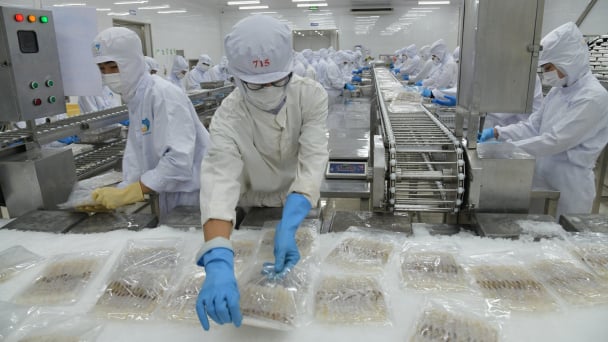
(VAN) This represents the most significant growth in the first quarter in the past four years. From January to March 2025, the export turnover of AFF products was 15.72 billion USD.
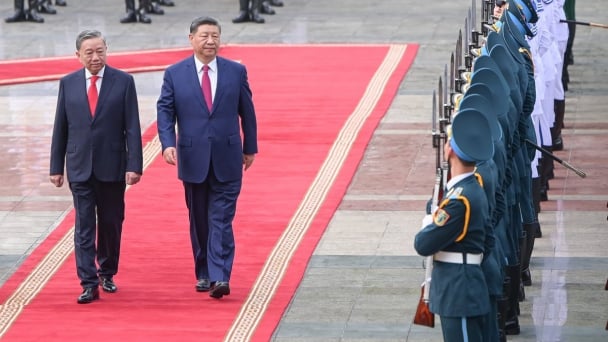
(VAN) On April 14, at the Presidential Palace, Vietnam General Secretary To Lam chaired the welcoming ceremony for General Secretary and President of China Xi Jinping, who is on a two-day state visit.
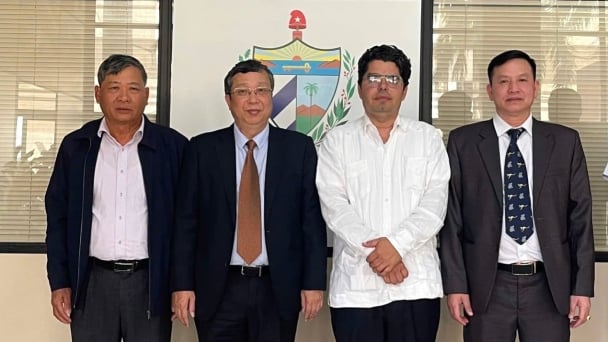
(VAN) The Vietnam-Cuba technical cooperation project to develop rice production phase 5 (2019-2025) has supported Cuba in improving varieties, increasing rice yield and quality.
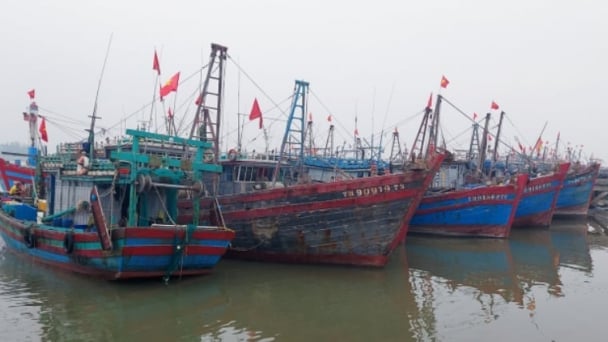
(VAN) The Deputy Minister of Agriculture and Environment underscored the necessity of addressing IUU fishing at the grassroots level and linking it to the accountability of local authorities.

(VAN) According to Deputy Prime Minister Bui Thanh Son, through this P4G Summit, Vietnam aims to convey the message of transforming its growth model towards rapid and sustainable development.
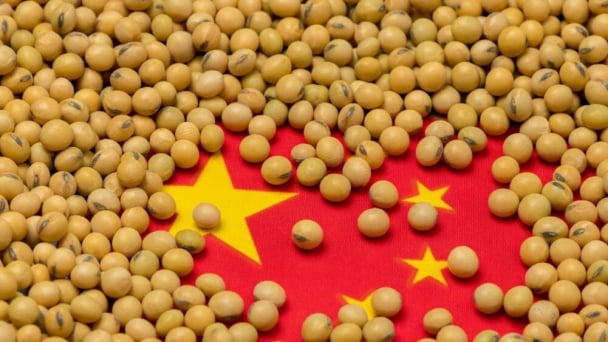
(VAN) Soybean production has been a priority for China to ensure food security, with increased soybean cultivation and yields highlighted in the annual No. 1 Central document.

(VAN) Vietnam Sea and Islands Week 2025 is expected to take place in Quang Binh, featuring a series of meaningful activities aimed at protecting the ocean through green technology solutions.